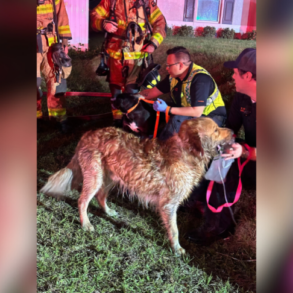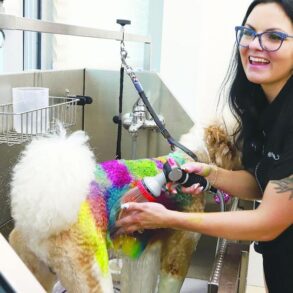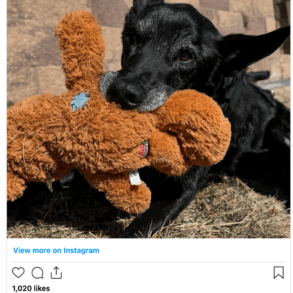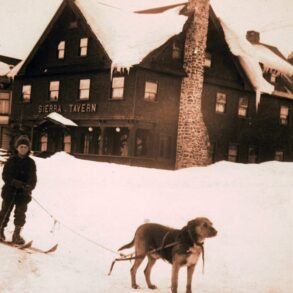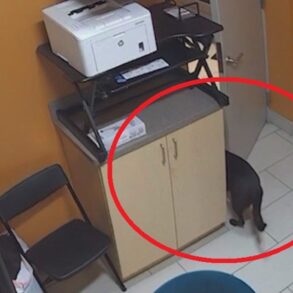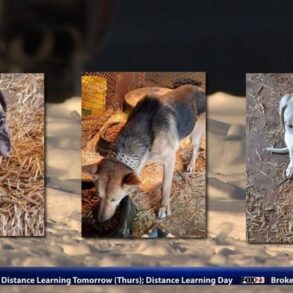
A new bill before the Washington State Legislature has sparked intense debate among lawmakers, wildlife advocates and local law enforcement.
Senate Bill 5482 seeks to end the use of dogs by local law enforcement to track problematic wildlife — such as bears, cougars and wolves — unless they receive explicit permission from the state.
While some see it as a critical step toward more responsible wildlife management, others argue it could undermine local authorities’ ability to address immediate safety concerns.
The bill, sponsored by State Senator Marko Liias (D-Mukilteo), aims to restrict local agencies from using dogs to hunt these apex predators. Currently, dogs are permitted to track and pursue these animals in certain situations, primarily when public safety or livestock protection is at risk.
However, the bill proposes that local law enforcement, including county sheriffs, be required to consult with the Washington Department of Fish and Wildlife (WDFW) before initiating any hound hunts for predators like cougars or bears.
Public against hunting with hounds
During a public hearing on the bill, Senator Liias emphasized that public support for limiting hound hunting has existed for decades.
“Initiative 655, passed in 1996 with over 60% of the vote, clearly indicated that voters did not want hound hunting for predators,” Liias said. “Cougars don’t present a significant public safety threat, and killing too many can actually escalate the problem.”
Wildlife advocates are particularly concerned about counties like Klickitat, where hound hunting has been used excessively without proper oversight from WDFW. Sheriff Bob Songer told KIRO Newsradio’s John Curley in an interview that he routinely deploys a volunteer posse to hunt down problematic wildlife.
Rachel Heymon, a Klickitat County resident, testified that frequent hound hunts in her area have disrupted local ecosystems.
“There have been over 154 county hound hunts in five years, often involving armed posse hunters chasing wildlife that pose no threat,” Heymon said. “These hunts scare people, disrupt ecosystems, and endanger public safety. Expertise from trained wildlife personnel is needed.”
More on MyNW: Washington considers taking over grizzly bear management — But not everyone’s on board
Critics say bill hurts public safety
Critics of the bill argue that local law enforcement officers, particularly county sheriffs, have a better understanding of their communities and can respond faster to predator threats.
“Public safety is absolutely the sheriff’s number one duty,” Brad Manke, elected Stevens County Sheriff, said. “If we lose the ability to act quickly in these situations, it could lead to more dangerous encounters between humans and wildlife.”
Supporters of the bill, including environmental organizations like Friends of the White Salmon River, argue the current system allows too much unregulated and reckless action.
“Some county-initiated hunts aren’t constrained by any guidelines on the age, sex, or health of the animals,” Pat Arnold, the group’s executive director, said. “This is disruptive to cougar populations and can lead to unintended consequences, such as increasing conflict with humans.”
Supporters also argue that allowing untrained volunteers to hunt with hounds only increases risks.
“County officers don’t have the necessary training to make these decisions,” Arnold said. “We need to leave wildlife management to the professionals at WDFW.”
Another key argument in favor of the bill is that the science behind predator management shows that removing too many adult cougars can actually increase conflicts.
Second chances with strings attached: DUI record vacation bill clears key hurdle in Washington
Killing cougars disrupts healthy ecosystem
Josh Rosenau, Director of Policy and Advocacy for the Mountain Lion Foundation, explained, “Killing mature cougars destabilizes populations, leading to more inexperienced, conflict-prone animals. Cougars are vital to controlling chronic wasting disease in deer and maintaining a healthy ecosystem.”
The bill does not remove the ability of county agencies to respond to emergencies. Instead, it requires them to coordinate with the state to ensure wildlife management decisions are based on scientific research and expertise.
“We want to ensure that the state’s wildlife management goals are applied statewide, not just county by county,” Rosenau said.
Not everyone is convinced. Richard Eich, a longtime hound hunter in Ferry County, argued that taking away local control will only harm rural communities.
“I’ve worked with the DFW for years,” Eich said. “We need the ability to react quickly, and if you take away local control, it will only harm our communities. People will go back to handling these issues themselves, without calling authorities.”
Senate Bill 5482 had its first hearing on Monday. The committee must take a final vote on the bill by Friday; otherwise, it is most likely dead for this legislative session.
Matt Markovich often covers the state legislature and public politics for KIRO Newsradio. You can read more of Matt’s stories here. Follow him on X, or email him here.
Follow @https://twitter.com/mattmarkovich
This post was originally published on this site be sure to check out more of their content.

















